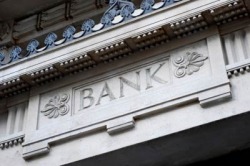Islamic Banking Operations

The ever changing consumer needs, intensified international competition, new regulations and information technology upgrades are pushing banks to expand their product lines and introduce new types of products and services to remain competitive in the industry. While essential functions performed by financial institutions such as the provision of payment services and facilitation of the allocation of economic resources over time and space have remained relatively constant over the past years, the list of classic financial products is regularly enriched by a number of new products, including short-term foreign currency advances, factoring and securitisation.
Some of the products that are the result of innovation process in commercial banks are long-term debt such as debentures, secured and unsecured notes, mortgages, floating rate notes, leasing, project financing and derivative instruments. New securities traded by these banks include ordinary shares, preference shares, bonds, treasury papers, debenture, secured and unsecured notes issued by companies, exchange trade options and warrants. Banks also innovate in derivative products such as interest-rate swaps, interest-rate futures, forward rates agreements and options on future contracts. These derivative products tend to give a return regardless to real-sector activities and even without the involvement of money. In a forward-rate agreement, for instance, no commitment is made between the parties to the FRAs to lend or borrow the principal amount and the exposure of both parties is only to the difference between the agreed interest rate and the settlement rate applicable at the date of settlement, which reduces the risk for both parties compared to a classic load contracted in the future.
Similarly, interest-rate futures and options on future contracts can allow to reduce the uncertainty of a future arrangement to both borrowers and lenders by locking interest rates at present date. While interest-rate swaps allow companies to use their credit-standing to reduce their overall cost. In this case, principal amounts are not physically exchanged. Only the difference between the two operations is paid, which reduces the amount of exchanged cash.
The innovation in in banking products also includes new market segments such as in microcredit, where the traditional banking industry have begun to realise that these microcredit borrowers should more correctly be categorised as pre-bankable; thus, microcredit is increasingly gaining credibility in the mainstream finance industry and many traditional large finance organizations are contemplating microcredit projects as a source of future growth. SME oriented products is also another axis of development for banks where we see specialized banks competing to offer comprehensive and integrated financial products as well as business advisory services to SMEs.
Some of the products that are the result of innovation process in commercial banks are long-term debt such as debentures, secured and unsecured notes, mortgages, floating rate notes, leasing, project financing and derivative instruments. New securities traded by these banks include ordinary shares, preference shares, bonds, treasury papers, debenture, secured and unsecured notes issued by companies, exchange trade options and warrants. Banks also innovate in derivative products such as interest-rate swaps, interest-rate futures, forward rates agreements and options on future contracts. These derivative products tend to give a return regardless to real-sector activities and even without the involvement of money. In a forward-rate agreement, for instance, no commitment is made between the parties to the FRAs to lend or borrow the principal amount and the exposure of both parties is only to the difference between the agreed interest rate and the settlement rate applicable at the date of settlement, which reduces the risk for both parties compared to a classic load contracted in the future.
Similarly, interest-rate futures and options on future contracts can allow to reduce the uncertainty of a future arrangement to both borrowers and lenders by locking interest rates at present date. While interest-rate swaps allow companies to use their credit-standing to reduce their overall cost. In this case, principal amounts are not physically exchanged. Only the difference between the two operations is paid, which reduces the amount of exchanged cash.
The innovation in in banking products also includes new market segments such as in microcredit, where the traditional banking industry have begun to realise that these microcredit borrowers should more correctly be categorised as pre-bankable; thus, microcredit is increasingly gaining credibility in the mainstream finance industry and many traditional large finance organizations are contemplating microcredit projects as a source of future growth. SME oriented products is also another axis of development for banks where we see specialized banks competing to offer comprehensive and integrated financial products as well as business advisory services to SMEs.
